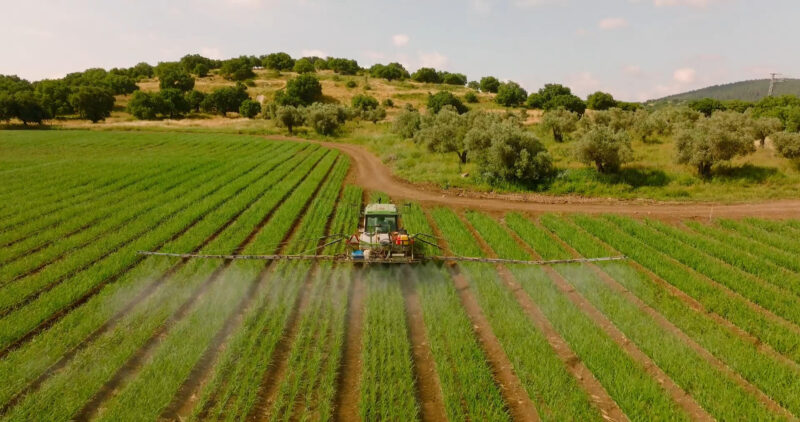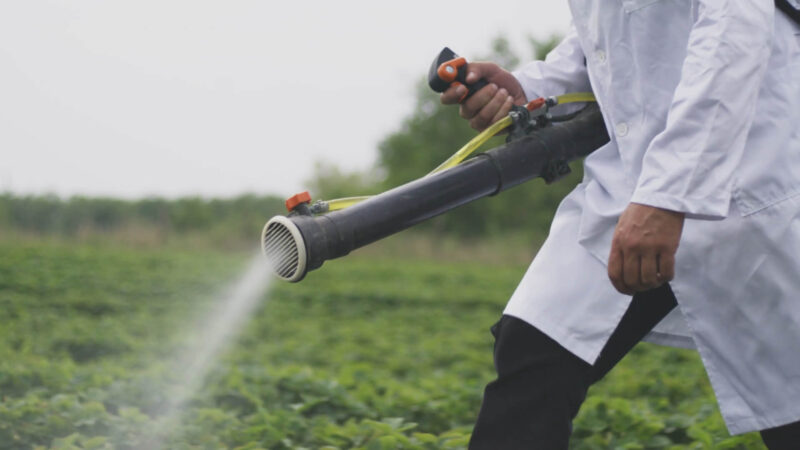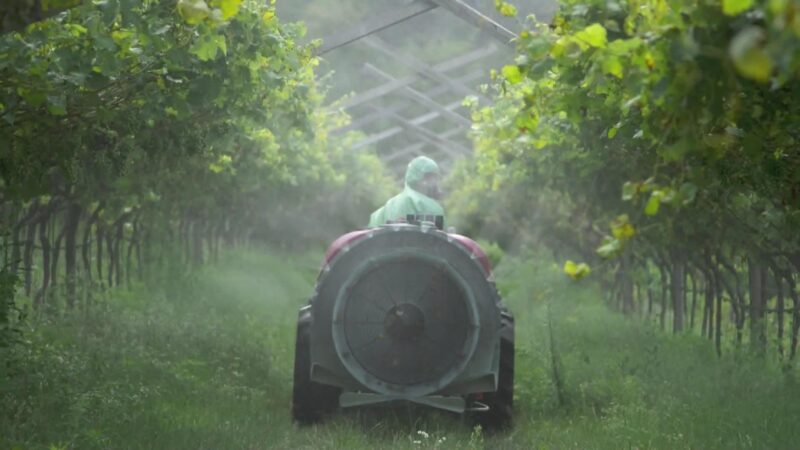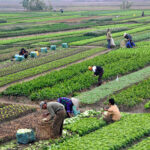Sustainable agriculture is a method of farming that aims to meet society’s current food and textile needs without compromising the ability of future generations to meet their own needs.
It involves practices that are environmentally sound, economically viable, and socially responsible.
A critical aspect of sustainable agriculture is reducing the use of pesticides.
Pesticides, while effective in controlling pests and increasing crop yields, have significant adverse effects on various elements of human life.
Let’s talk about it.
The Need for Reducing Pesticide Use

Pesticides have long been used to protect crops from pests, but their environmental impact is profound and concerning.
One major issue is soil degradation; pesticides can disrupt the natural balance of microorganisms in the soil, leading to decreased fertility and long-term agricultural sustainability problems.
Additionally, pesticide runoff into water bodies leads to water pollution, which affects aquatic life and contaminates drinking water sources.
Harm to wildlife, including beneficial insects like bees and butterflies, is another significant concern, as these creatures play essential roles in pollination and maintaining ecological balance.
Health risks associated with pesticide use are well-documented. Pesticides have been linked to various health problems, including cancer, respiratory issues, and birth defects.
These health risks affect not only farmers who are in direct contact with these chemicals but also consumers who are exposed to pesticide residues in food.
Economically, the high cost of pesticides can be a burden on farmers, especially those operating on tight margins.
However, transitioning to sustainable practices can potentially lead to increased yields and reduced costs over time, making it a more economically viable option.
Challenges and Nuances in Reducing Pesticide Use
Reducing pesticide use is fraught with challenges and nuances, primarily because it involves a polarized debate between farmers and consumers.
Farmers often need more trust from consumers regarding their practices and the necessity of pesticides.
Consumers, on the other hand, are increasingly aware of and concerned about the environmental and health impacts of pesticide use.
The Need for Context-Specific Solutions

One of the significant challenges in reducing pesticide use is that solutions must be context-specific.
Farming practices and ecosystems vary widely by region, and what works in one area may not be suitable in another.
Climate, soil type, crop varieties, and pest populations all influence the effectiveness of different pest management strategies.
For example, a method that works well in a temperate climate may not be effective in a tropical one.
Therefore, tailored approaches that consider local conditions and challenges are necessary.
Differences in Regional Farming Practices and Ecosystems

The diversity in regional farming practices and ecosystems further complicates the reduction of pesticide use.
Each region has unique agricultural practices, influenced by three main factors:
- Historical
- Cultural
- Economic
For instance, small-scale farmers in developing countries may rely on traditional methods that differ significantly from the mechanized, large-scale farming seen in developed countries.
These differences necessitate customized solutions that respect and build on local knowledge and practices.
Importance of Farmer Empowerment and Support

Farmer empowerment and support are crucial in this transition. Many farmers operate on thin financial margins and may lack the investment capacity to adopt new, sustainable practices. Sadly, this is one of the problems we face today.
The initial costs of switching to alternative pest control methods, such as purchasing new equipment or investing in cover crops, can be prohibitive.
Therefore, financial assistance, subsidies, and incentives are essential to support farmers during this transition period.
Financial Margins and Investment Capacity
Many farmers operate on thin financial margins, making it difficult for them to invest in new technologies or practices.
The high initial costs associated with transitioning to sustainable agriculture can be a significant barrier.
For example, purchasing new equipment, seeds for cover cropping, or organic fertilizers can strain already limited resources.
Financial assistance in the form of subsidies, grants, or low-interest loans can help bridge this gap, making it feasible for farmers to adopt sustainable practices without risking their livelihoods.
Benefits of Reducing Pesticide Use
The benefits of reducing pesticide use in agriculture are manifold and span environmental, health, and economic domains.
| Benefits | Description |
|---|---|
| Environmental | Improves soil and water quality, reduces erosion, increases biodiversity. |
| Health | Lowers health risks by reducing exposure to harmful chemicals. |
| Economic | Cuts costs, boosts productivity, meets demand for sustainable products. |
| Social | Improves community health, empowers farmers, stimulates economies. |
| Policy and Regulatory | Supports regulations, promotes sustainable practices, ensures compliance. |
Overcoming Barriers to Reducing Pesticide Use

Overcoming the barriers to reducing pesticide use requires addressing:
- Financial
- Educational
- Policy and regulation
- Infrastructure
Financial barriers can be mitigated through subsidies and incentives for farmers who adopt sustainable practices. Providing financial support during the transition period can help alleviate the initial costs and risks associated with changing farming methods.
Knowledge and education are critical. Training programs and awareness initiatives can equip farmers with the skills and knowledge needed to implement sustainable practices effectively. Sharing successful case studies and best practices can inspire and guide farmers through the transition process.
Policy and regulation play a significant role in reducing pesticide use. Stricter regulations on pesticide use and enforcement can drive the adoption of safer alternatives. Support for research and development of sustainable alternatives is also essential.
Infrastructure improvements are necessary to support sustainable farming. Better access to markets, resources, and technologies can help farmers adopt and maintain sustainable practices. Building networks for sharing knowledge and resources can facilitate the widespread adoption of these methods.
Summary
Reducing pesticide use is a crucial step towards achieving sustainable agriculture.
The environmental, health, and economic benefits make it an imperative goal.
However, this transition requires a concerted effort from all stakeholders, including farmers, consumers, and policymakers.







